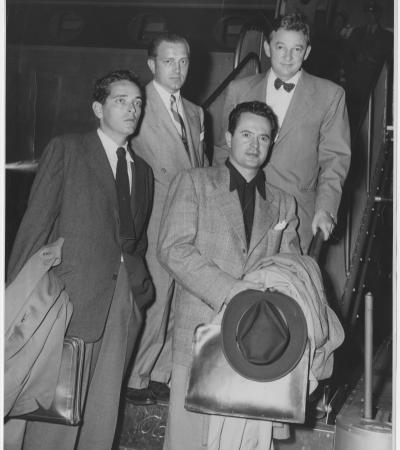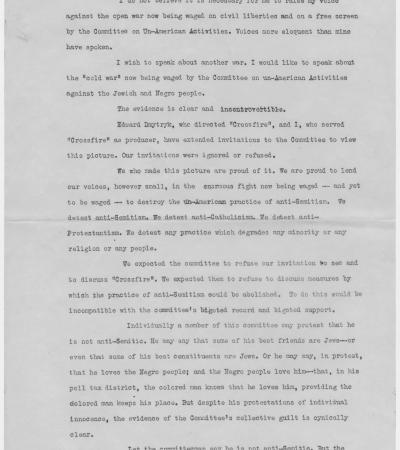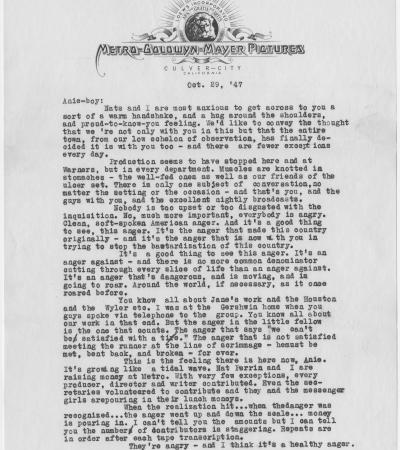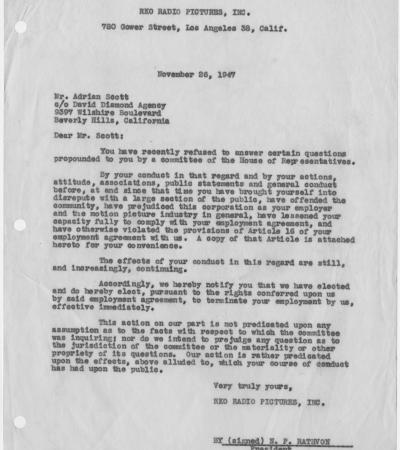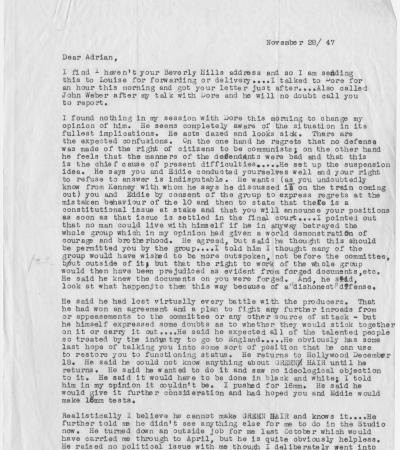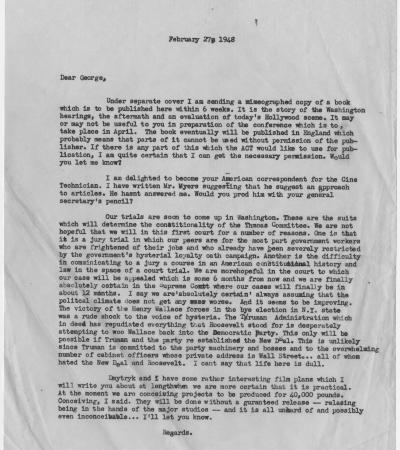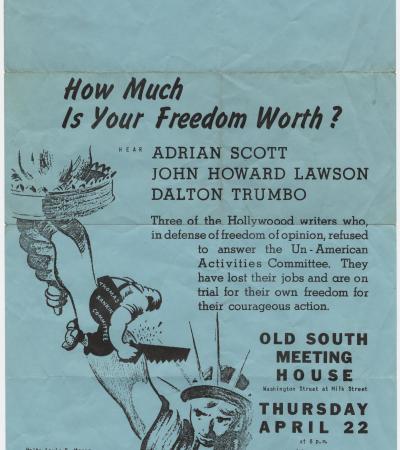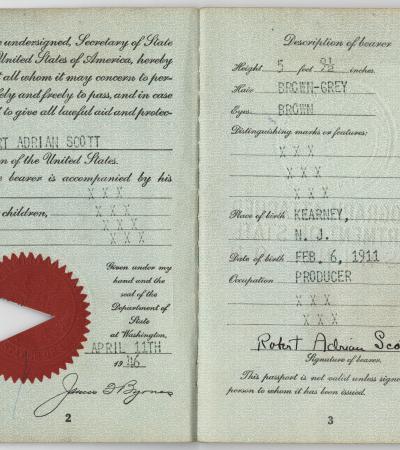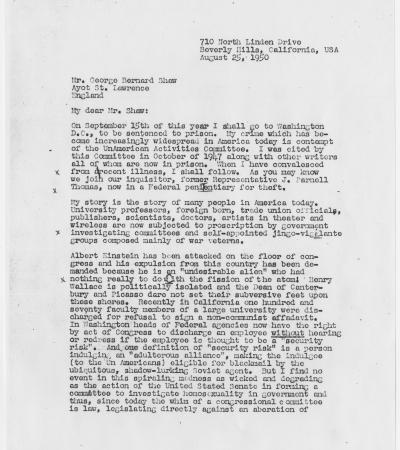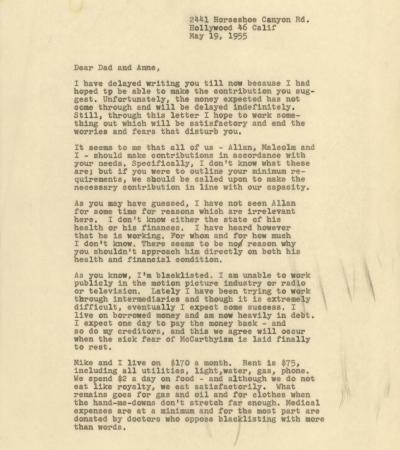Adrian Scott was born in 1911 into a middle-class New Jersey family. After serving a short stint as a film critic and magazine editor, he became a Hollywood screenwriter in 1939. But he found his real calling in 1944 upon joining RKO Pictures as a film producer. He and director Edward Dmytryk, a future fellow Hollywood Ten member, teamed up on a string of successful dark thrillers. Scott was at the height of his career in October 1947 when he was subpoenaed to testify at House Un-American Activities Committee (HUAC) hearings. He had joined the Communist Party in 1944. He became one of the Hollywood Ten when he refused to answer HUAC’s questions on First Amendment grounds. Scott was sentenced on Sept. 27, 1950, to serve a year in federal prison and fined $1,000. He sued RKO for wrongful dismissal after being fired by the studio; the case made it all the way to the Supreme Court, where it was rejected in 1957. Scott’s plight was not helped when Dmytryk recanted his communist past and, testifying before HUAC in 1951, claimed that Scott had pressured him to put communist propaganda in his films. After serving his prison sentence Scott found without employment. He moved to London, where he eventually found work writing without credit for television. When the blacklist ended in 1960, Scott returned to Los Angeles to work for Universal. He had some success, again in television, writing for such series as Lassie and Have Gun — Will Travel under his wife’s name, Joan LaCour, as a pseudonym.
Additional content for this collection can be found in the "Inventory for collection.”
Hollywood producer Adrian Scott and others arrive in Washington, D.C. to testify before the House Un-American Activities Committee, October 10, 1947
Front, left to right: Ring Lardner, Jr (writer) and Larry Parks (actor). Rear, left to right: Edward Dmytryk (director) and Adrian Scott (producer).
Adrian Scott's statement to the House Un-American Activities Committee, October 28, 1947
Taken from first page of statement: "I would like to speak about the "cold war" now being waged by the Committee on Un-American Activities against the Jewish and Negro people." Scott provides evidence and discussion about this initial statement in the document.
Letter from Bernard Fein to Adrian Scott, October 29, 1947
Bernard Fein - actor, producter, screenwriter, and director - writes to his friend Adrian Scott (referring to him as "Anie-boy") of the anger felt in Hollywood regarding the blacklisting of Scott and others.
Letter from RKO Radio Pictures dismissing Adrian Scott, November 26, 1947
RKO fires Adrian Scott due to his unfriendly testimony before HUAC.
Letter from Joe Losey to Adrian Scott, November 28, 1947
Director Joe Losey writes to Scott of his talk with RKO Studios Head of Production Dore Schary about blacklisting. Losey discusses The Boy with Green Hair, a film that Scott would produce and Losey would direct. Released in 1948, it was a box office flop.
Letter to George Elvin from Adrian Scott, February 27, 1948
For the first year of the blacklist, Adrian Scott returned to journalism, contributing to the London journal Cine-Technician.
Advertisement for talk titled "How Much is Your Freedom Worth" by Adrian Scott, John Howard Lawson, and Dalton Trumbo, April 22, 1948
Flyer advertising a talk titled "How Much is Your Freedom Worth" by Adrian Scott and fellow Hollywood Ten members John Howard Lawson and Dalton Trumbo, sponsored by the Progressive Party of Massachusetts
Adrian Scott's voided passport
Scott's passport, issued April 11, 1946, was suspended once he was indicted.
Letter to George Bernard Shaw from Adrian Scott, August 25, 1950
Scott writes to playwright Bernard Shaw of the current anti-communism hysteria in the U.S. and to request Shaw's permission to produce Shaw's play Arms and the Man. Scott outlines his qualifications to adapt the play to the screen.
Letter from Adrian Scott to his father and Anne, May 19, 1955
Scott writes to his father that he cannot help him financially at present as he is blacklisted and having trouble finding work.
